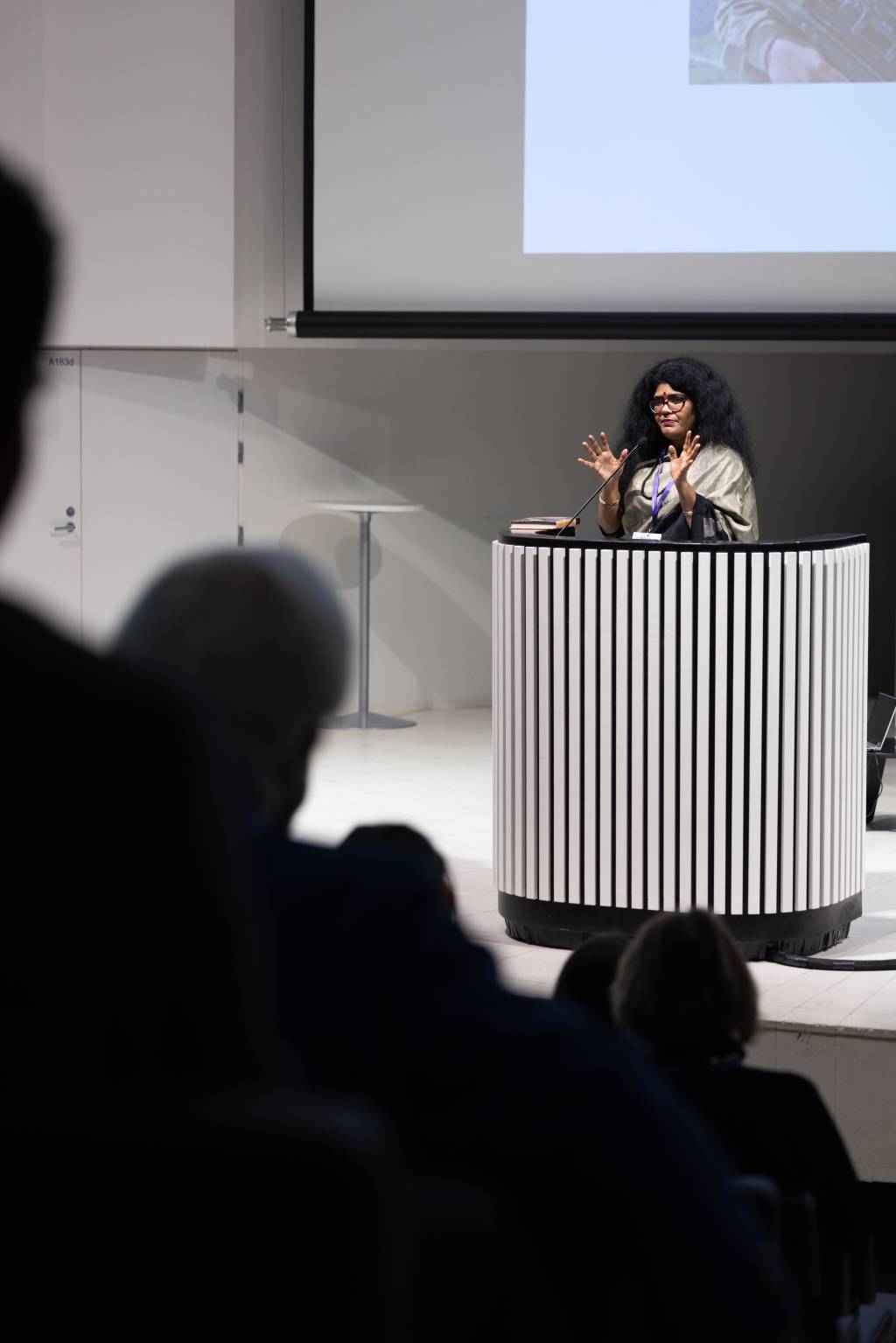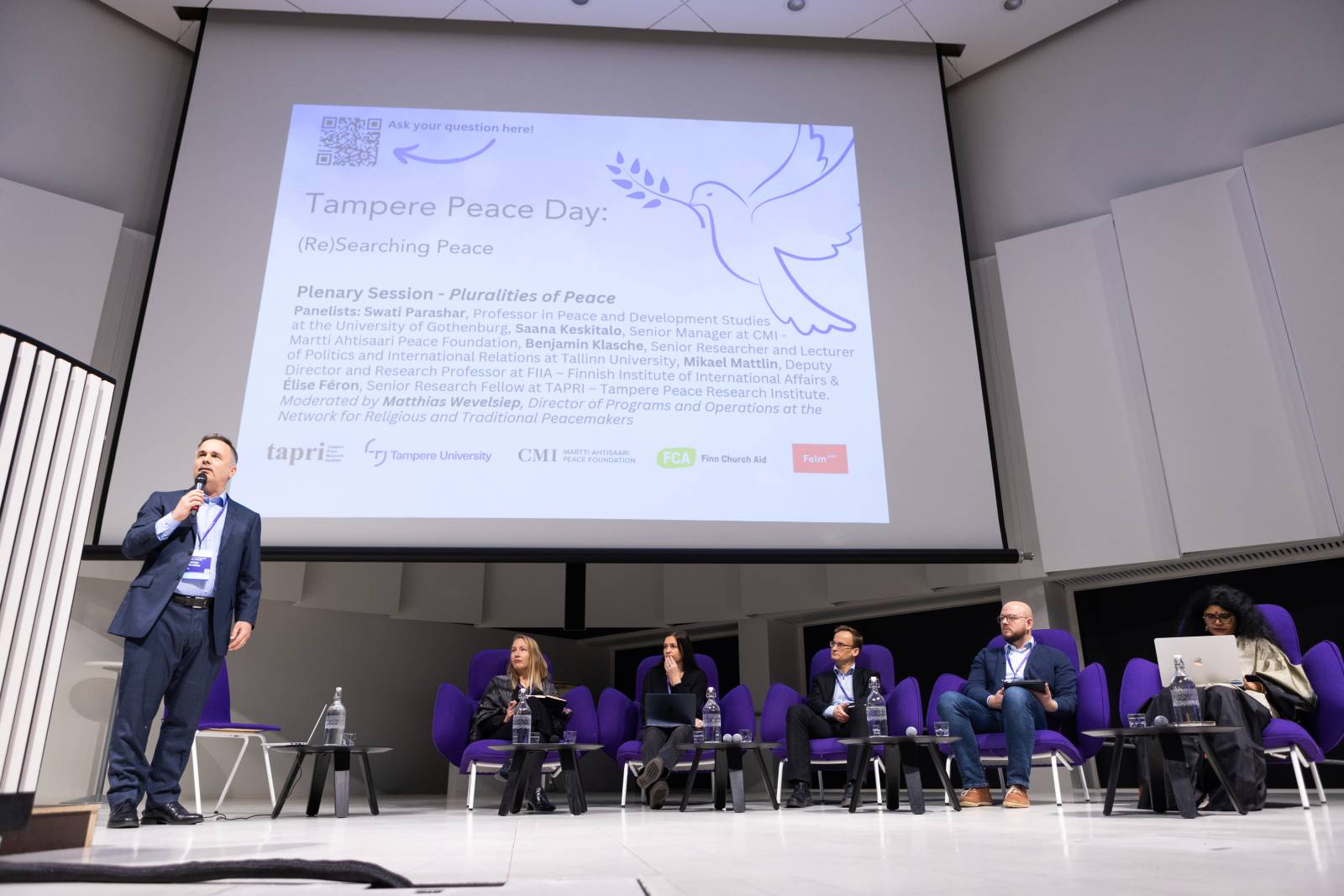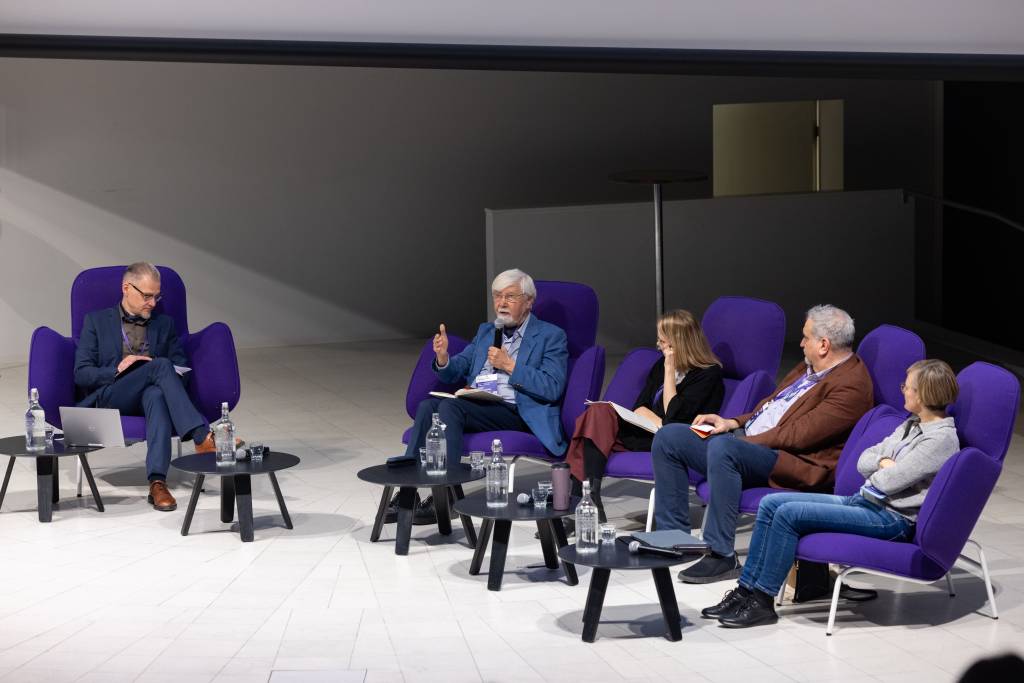A summary will never do justice to the rich and complex discussions that took place during the day, but some key takeaways are worth sharing:
- Through her keynote speech, Professor Swati Parashar highlighted the need to diversify sources and sites of knowledge(s) to counter the dominating, colonially constructed idea of a singular liberal peace. She asked us to expand the category of peace-doers and consider ‘the everyday’ as an important source of knowledge.

- Developing on Swati’s words, the first plenary discussion reminded us of the need to bring silenced stories and ideas of peace to the decision-making table(s).
- Relatedly, drawing on the site of the everyday, the panelists highlighted that war and military violence leads to other types of violences, which influence every part of social life. Hence, when building peace, multiple stakeholders including civil society actors must be part of the peacemaking process, not only peace professionals.
- Increased militarization and ‘militarized minds’ which take violence as an assumed starting point are a dangerous tendency that needs to be countered with alternative narratives.
- Justice is an integral part of embracing pluralities of peace(s).
- The liberal peace system is collapsing, if not already collapsed – and perhaps, this system was never really in place outside of the ‘West’. However, we are in a time of change – and if we are willing to rethink and embrace new ideas, agents, and practices, it might be possibleto ‘build back better’ after this collapse.
In addition to the topics discussed in the plenary session, we had four breakout sessions addressing the following themes: AI, Future Wars, and What it Means for Peace Practitioners; The Role of Peace Education in Times of Uncertainty and Polarization; Feminist Visions of Peace: Perspectives on Building Inclusive Futures; and a video screening by students of the “Decolonizing Peace Participatory Video Course”.
We extend our heartfelt gratitude to our exceptional panelists and moderators, as well as to all participants who contributed to a day filled with insightful dialogues and discussions.
Tampere Peace Day 2024 was organized jointly by Tampere Peace Research Institute (TAPRI), CMI – Martti Ahtisaari Peace Foundation (CMI), Finn Church Aid (FCA) and the Finnish Evangelical Lutheran Mission (Felm).
Photos Credits: Marjaana Malkamäki.


